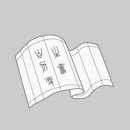
英文原版 Notes on the Cinematograph (New York Review Books Classics) 电影书写札记 Robert Bresson罗贝尔·布烈松 英文版 进口英语原版书籍
书籍内容简介可联系客服查阅,查书找书开票同样可以联系客服
¥ 91.1 ¥ 91.1 九五品
库存3件
广东广州
认证卖家担保交易快速发货售后保障
作者Bresson, Robert
出版社NYRB Classics
ISBN9781681370248
出版时间2016-11
装帧平装
定价91.1元
货号YBYDB-4355
上书时间2024-03-21
- 最新上架
商品详情
- 品相描述:九五品
- 商品描述
-
内容摘要
罗伯特·布列松被认为是法国电影大师,《电影摄影笔记》收集了自1950年至1974年,他关于生活和电影制作的睿智格言。 此书是布列松的工作日记,在此他写下他的发现,寥寥数语却形成一个人的一切:他的情趣,他的好恶,它引导布列松进入电影创作的天国。在其朴素的语言和持重的风格中,我们能感受到他对真理的向往,对完美的执著,我们能理解他那永不止息的战斗,反对妥协和庸俗,对抗金钱的权势。这些文字见证了布列松的希望与失望、向往与抗拒。它们既深刻又真实,犹如鲁宾逊·克鲁索日历上的印迹。这些笔记,梦想和激情,向我们展示了肉体与精神的互补性,展示了形体的语言,声音的语言。 这些文字不仅仅是这位资深导演的日记,而且具有更深刻的意义。它们是伤痕,是痛苦印记,是稀世珍宝。在我们这个夜晚(为点亮银幕之光而必须到来的创作之夜),这些文字宛如灿烂的群星,为我们照亮了通向完美的简朴而又崎岖的小路。 The French film director Robert Bresson was one of the great artists of the twentieth century and among the most radical, original, and radiant stylists of any time. He worked with nonprofessional actors—models, as he called them—and deployed a starkly limited but hypnotic array of sounds and images to produce such classic works as A Man Escaped, Pickpocket, Diary of a Country Priest, and Lancelot of the Lake. From the beginning to the end of his career, Bresson dedicated himself to making movies in which nothing is superfluous and everything is always at stake. Notes on the Cinematograph distills the essence of Bresson’s theory and practice as a filmmaker and artist. He discusses the fundamental differences between theater and film; parses the deep grammar of silence, music, and noise; and affirms the mysterious power of the image to unlock the human soul. This book, indispensable for admirers of this great director and for students of the cinema, will also prove an inspiration, much like Rilke’s Letters to a Young Poet, for anyone who responds to the claims of the imagination at its most searching and rigorous.
— 没有更多了 —












以下为对购买帮助不大的评价